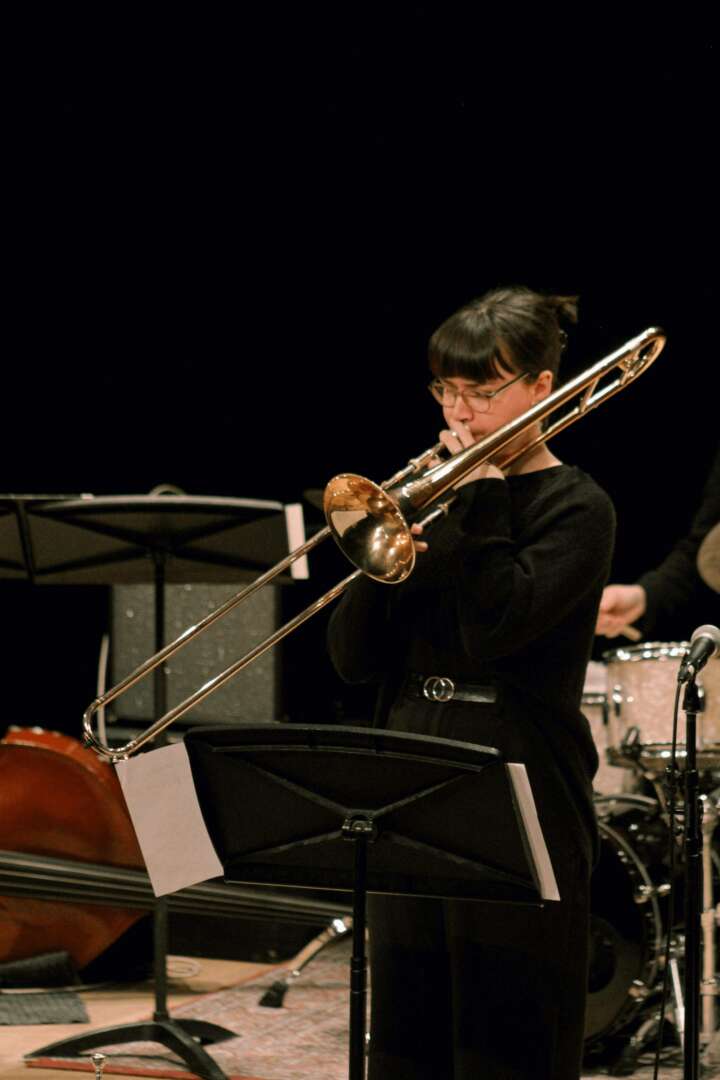Alright – so today we’ve got the honor of introducing you to Margaret Donovan. We think you’ll enjoy our conversation, we’ve shared it below.
Margaret, looking forward to hearing all of your stories today. When did you first know you wanted to pursue a creative/artistic path professionally?
I loved music from an early age. My mom was a pianist herself and put me on the path of learning to play music as soon as I was able to. We were always singing and she was always pushing me to practice piano. From there, music was always a part of my upbringing, but I never planned for it to become my profession. It was never told to me explicitly, but there was always a notion that “Musicians don’t make any money, if you try to make a living from music you’ll likely end up on the streets. You have to be extremely lucky to make it in the music industry and most musicians even if they’re extraordinarily talented will never see financial stability unless they’re a teacher”. There was a lot of discouragement and very little understanding of what options were available as a musician other than superstar, teacher, or unemployed. And so, choosing to go to university for music was a big risk for me. I was met with a lot of hesitation from my family and had a lot of doubts in myself. As a 17-year-old fresh out of high school, I was scared but I knew I was also smart and hard-working. I had the confidence to know that I could give it my all and if I saw it wasn’t working out or that music wasn’t something I wanted to pursue professionally, I could change paths and wasn’t afraid to start over in a different field.
And so, it wasn’t until maybe my 3rd year of university that I started to get a lot of calls for gigs. I started to see what it was really like to work in music. University had given me the technical ability to be a dependable musician, it had also given me a lot of great contacts. People who would recommend me whenever the role of trombonist needed to be fulfilled, people who had seen what I could do and trusted me to play for their own personal projects. And the longer you exist in this space of getting calls, doing a good job and making connections, the more you create this snowball effect accumulating people who want to work with you.
At this current point in my career, I’ve started leading and directing my own projects. I’m always reflecting and thinking about what I can create that makes me happy, that satisfies myself musically and can be funded/profitable for the artists involved. I don’t think there was ever a single difinitive moment where I decided to pursue music professionally. I think it took many years to learn what it is like to work in the music industy and it took a long time to gain the skills and confidence to understand that this is a viable way to support myself. I think I’m still searching for the avenue of music that makes me the happiest. As a self-employed musician, I’m incredibly lucky to have the freedom to put forward and bring to life the projects that speak to me and touch me deeply, though it takes knowing myself very well to be able to sort through what type of work speaks to me and what is better left for someone else. There’s a lot of work out there in music that doesn’t make me happy but there’s also a lot of work out there that makes me know with 100% certainty that I wouldn’t want to be doing anything else with my life. It’s just a matter of learning to listen to what speaks to you and following the paths that fill your heart.
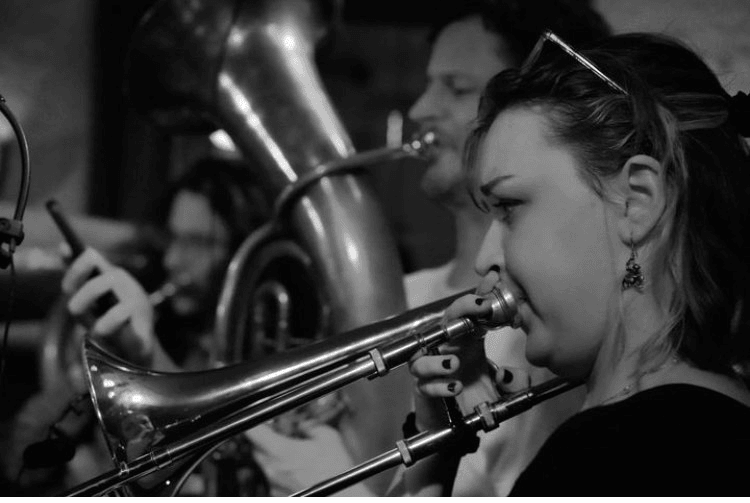
As always, we appreciate you sharing your insights and we’ve got a few more questions for you, but before we get to all of that can you take a minute to introduce yourself and give our readers some of your back background and context?
I’m a freelance trombonist, composer, arranger and bandleader! Being a freelance trombonist means that people will hire me for all sorts of projects. Since I studied jazz performance at McGill University in Montreal, people will often call me to play when improvisation is involved in their music. But I don’t just play jazz, I get called to play a lot of latin music like Salsa and Timba. It’s also common for freelance musicians to play pop music for weddings and other corporate events which often ends up being a lot of fun. Aside from that, I get hired to play at local swing dance events, musicial theatre productions, jazz big band shows and more.
I got into the industry while studying music at McGill. It started off as playing for little to no money in small venues with friends and has turned into getting called to play as a side musician to touring artists and being awarded the funding to pursue projects that mean the world to me. I’m currently dedicating time to exploring the world of music composition and arranging. I’ve always loved the idea of getting to create and show people something they’ve never seen before. Trying to make something interesting/different but still familiar and catchy.
The thing I’m currently most proud of is the sextet I’m co-leading with my friend Matys Colpron called “Facade”. We worked incredibly hard to build this band up from scratch. Together, we composed 10 new compositions and successfully played our first show in June of this year. We’re looking ahead to recording an album and playing festivals next year with the possibility of organizing a mini tour the year after. It’s been an incredible experience to see this band come to fruition and gain a reputation in Montreal alongside other well-established ensembles in the scene. I’m really excited to invest more time and energy into growing this project.

What’s a lesson you had to unlearn and what’s the backstory?
In music school, the main focus is getting better. You’re taught to constantly be criticizing yourself because getting better and being the best seems like the only way to survive as a musician. We get conditioned to pick out all the flaws in our playing and writing in the hope of improving. Because of this, for years I’ve been walking away from practice sessions and gigs incredibly discouraged. I’d be thinking to myself “My tone is so bad, my articulation needs so much work, that composition isn’t interesting enough, that solo was terrible, I really need to go practice, etc.” And I recently had the revelation that I haven’t had fun playing music in a long time. The grind of trying to get better is exhausting and it is ESSENTIAL that we take time to play for fun. To play a song, not because I need to work on it but because it’s fun and I love that song. And even though playing it won’t improve my playing, I need to nurture that love for music instead of just struggling all the time. Nurture the joy of playing, nurture the curiosity and exploration of ideas without the need to be great.
I think this idea of playing and digging into the avenues of music that spark joy are sacrificed in music school in the pursuit of learning the craft. Once I was out of school and choosing my own direction of practice and composition and exploration, I realized there was never enough emphasis on the joy of playing and there was too much importance placed on checking all the boxes of a perfect player. We will spend our entire lives improving as players, what we needed to learn was to dive into the music that truly speaks to us. This is essential for the longevity of our careers, our own happiness as musicians, and the quality and feeling in music we make.
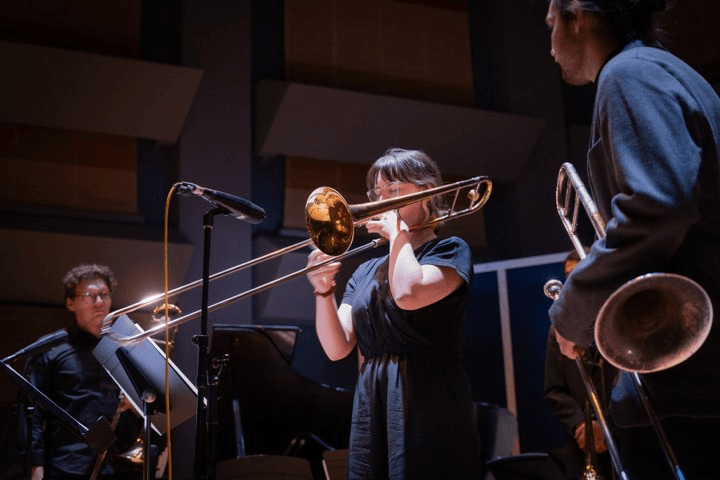
What do you find most rewarding about being a creative?
Seeing the effect it has on people. Often times I forget that the audience is having an experience when they see a show. They’re smiling, dancing, being reminded of something, thinking “That was weird” or having some kind of reaction to what I’m playing. And it’s not just about me and how I think my personal performance is going. It’s a gift to be able to give people this unique subjective experience and it’s something I often take for granted. Whenever I think a show isn’t going well, I remind myself to look out into the audience and remember “you’re providing this really cool experience to people”. Remembering that my music can make people dance or cry or feel anything range of emotions is really rewarding.
Contact Info:
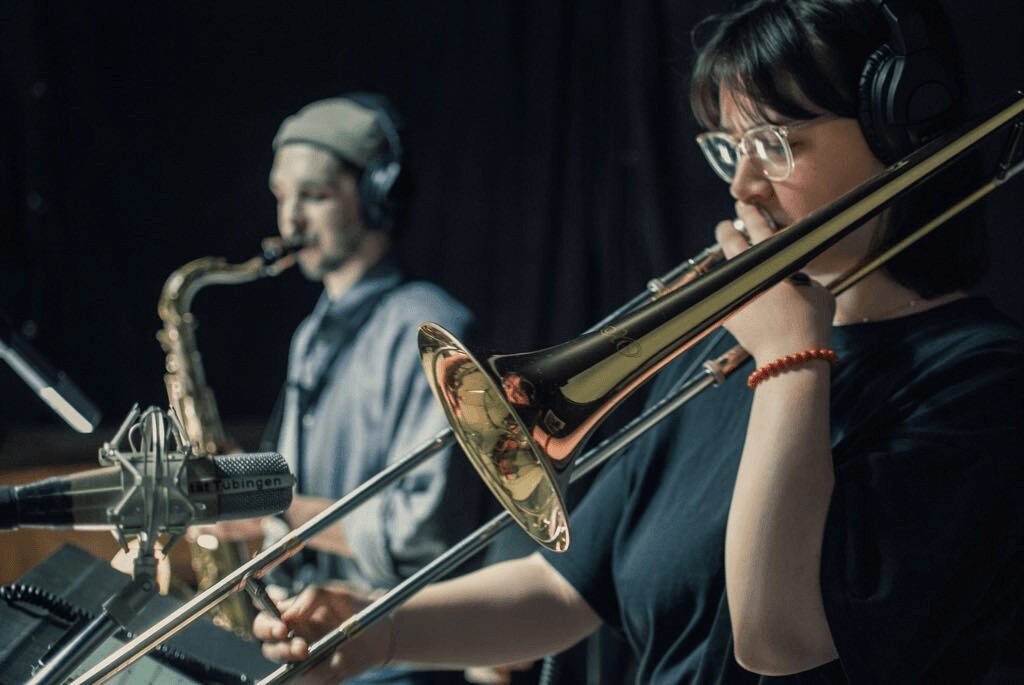
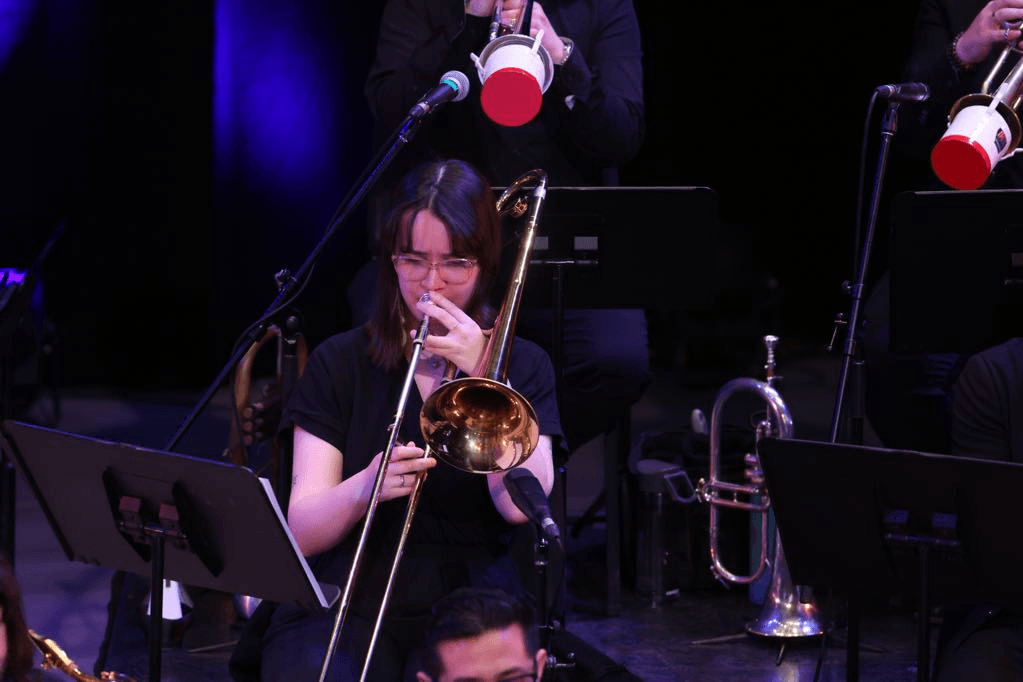
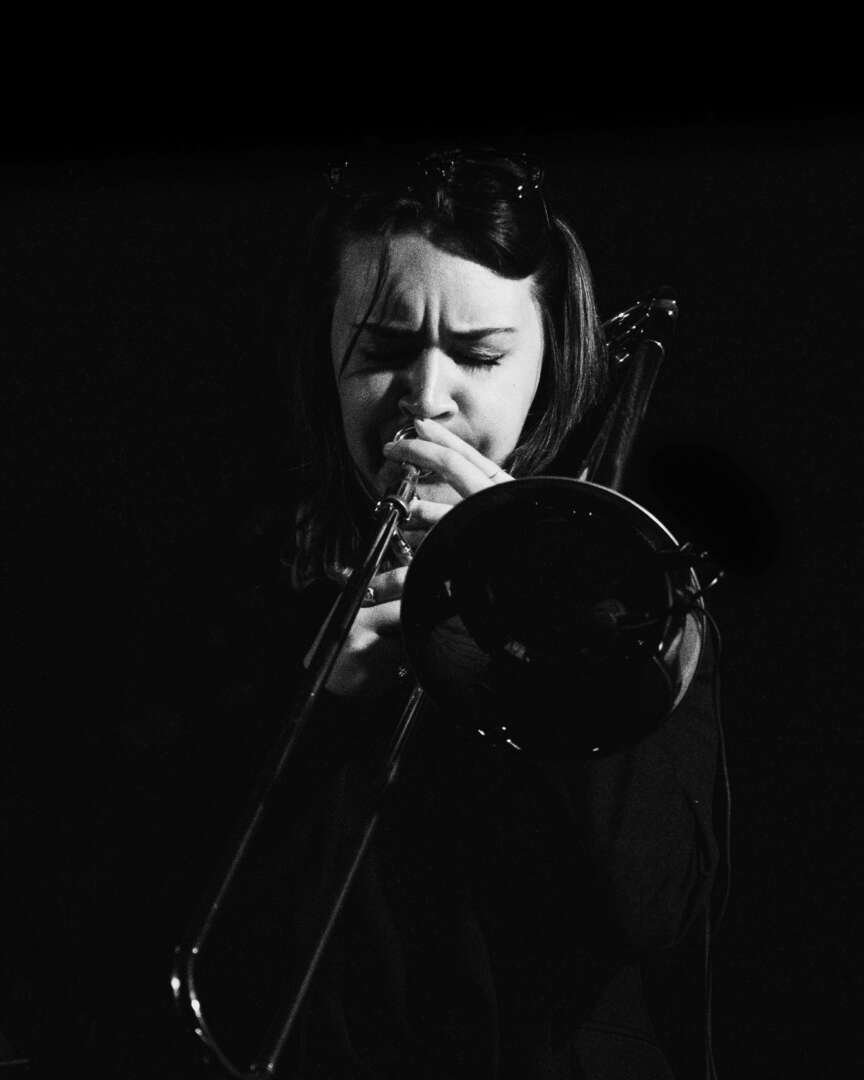
Image Credits
Teddy Kadonoff, Erin Pasemko, Nicolas Viau


